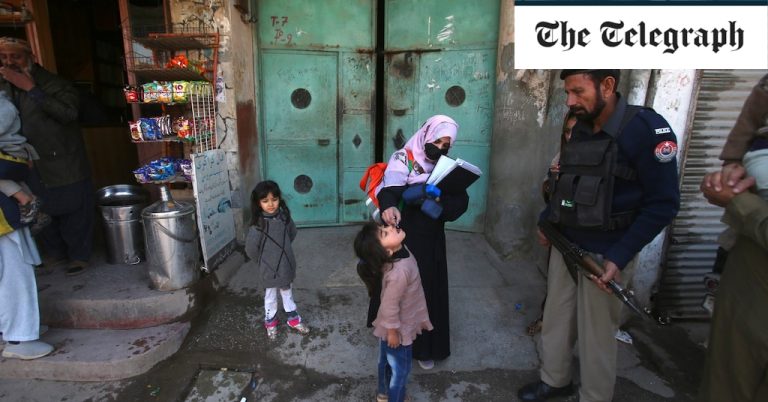Despite significant advancements in the global effort to eradicate polio, both Pakistan and Afghanistan continue to grapple with sporadic outbreaks, particularly in regions with disrupted access to healthcare services.
Vaccination campaigns in Balochistan, the largest region in Pakistan, have been disrupted in recent months by security threats and the enforced repatriation of Afghan nationals.
Dr Hamid Jafari, Director of Polio Eradication at the WHO, remains confident that the disease can be kept under control with sustained vaccination efforts.
“These cases tell us that the virus is still surviving and it is surviving in communities where we still have unvaccinated children,” said Dr Hamid Jafari, Director of Polio Eradication at the WHO.
“We are now dealing with one last type of wild poliovirus in these two countries. Endemic circulation is actually restricted in very limited geographies in these two countries…so we really are in the final stages.”
New cases ‘not a set back’
Two of the three strains of wild poliovirus have already been eliminated – wild poliovirus type 2 was eradicated in 1999 and wild poliovirus type 3 was eradicated in 2020. To officially declare the global eradication of polio, the world must stay disease-free for two years.
The Global Polio Eradication Initiative has been at the heart of efforts to wipe out the virus, which was endemic in 125 countries in 1988 and paralysed roughly 1,000 children every day.
Prof David Salisbury, Associate Fellow at the Central for Global Health Security at Chatham House, emphasised that the latest detection was “not a set back” in Pakistan’s mission to eliminate polio.
Wild poliovirus has been detected in 34 samples from environmental sources in the first three months of this year, including from surveillance samples of sewage, according to the latest figures from the WHO.
Poliovirus can live in human faeces for weeks – a concern in populations with low vaccination coverage where the mutated virus can circulate in unchecked sewage systems.
The UK declared a national incident in 2022 when the virus was picked up during routine fortnightly monitoring of sewage at London Beckton Sewage Treatment Works.
“There are positive environmental samples because humans are being infected with polio but have been lucky, so far this year, in not being paralysed. Most people…don’t get paralysed,” Prof Salisbury told the Telegraph.
“The job will be done when there have been no paralytic cases and no positive environmental specimens for a significant length of time…there is still much to do.”
Protect yourself and your family by learning more about Global Health Security
